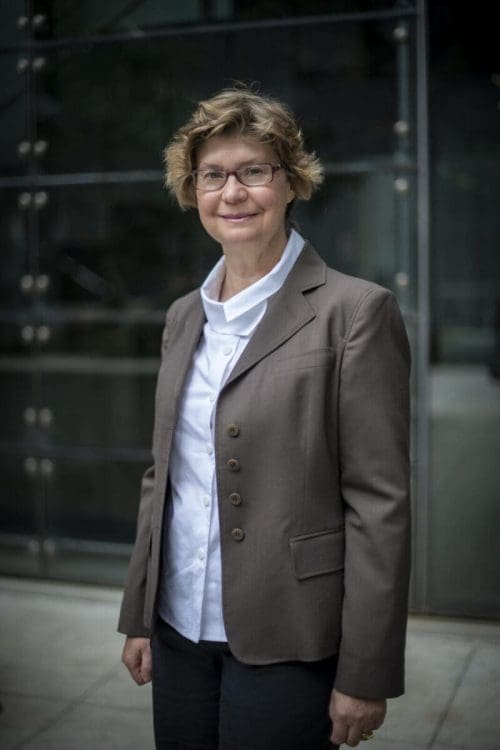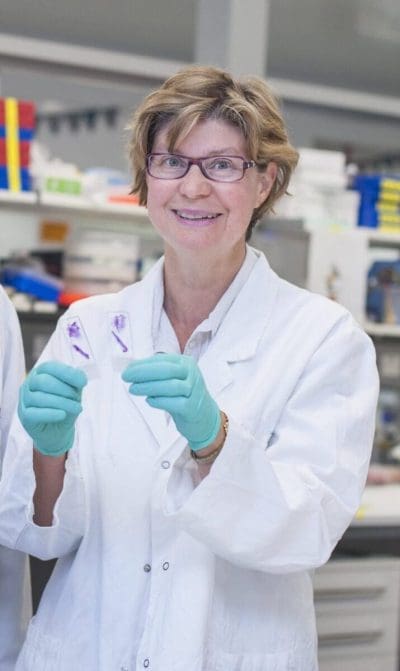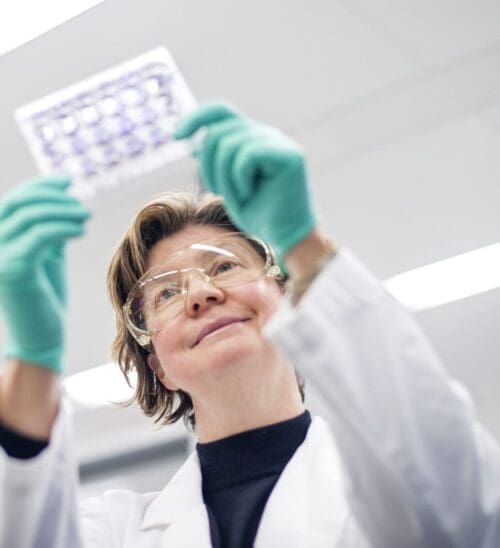A molecular and cellular biologist whose work to understand the root of breast cancer at a cellular level has been awarded the 2024 Australian Academy of Health and Medical Sciences Outstanding Female Researcher Medal.
Professor Jane Visvader FRS FAA FAHMS, Joint Head of ACRF Cancer Biology and Stem Cells Division at WEHI, has been recognised for her innovative and seminal work in isolating breast stem cells, and pinpointing likely “cells-of-origin” for breast cancer in women carrying a faulty BRCA1 gene.
“I am extremely honoured to receive this award, which recognises the work of an amazing team of scientists that I have had the privilege of working with over the last couple of decades,” Professor Visvader said.
“This includes Professor Geoff Lindeman, countless talented lab members, and other colleagues. Science cannot be done as an island and is very much a team effort.
“Our research team has experienced a few Eureka moments, which were incredibly exciting. I am very proud of our laboratory’s contribution to the breast cancer field through the identification of breast stem and daughter progenitor cells.
“This work has helped to define the differentiation hierarchy and uncover crucial molecular regulators of breast development and cancer. Importantly, this work also has clinical relevance and has culminated in an international prevention trial for breast cancer.”
Professor Visvader said she was proud to have had the opportunity to supervise and mentor many talented scientists who have gone on to become highly successful and independent researchers.
A mother of two, Professor Visvader shared advice for other women considering a career in science.
“Choose important research questions and don’t spread yourself too thinly,” she said.
“It is also key to be passionate and persevere through challenging times. Of course, there are extra challenges that young women can face, and it is fantastic to see the growing support in and out of the workplace that can allow scientific careers not to be unfairly cut short.”

Professor Visvader said that despite so many recent advances in breast cancer therapies, more than 685,000 women continue to die each year globally.
“We and the field still lack a deep understanding of the ‘ecosystem’ of breast cancer – that is, how interactions between the different types of cells found within a tumour collaborate to promote tumour growth and metastasis, and to confer resistance to therapy,” she said.
“I hope that our lab can make inroads into understanding tumour heterogeneity with the longer-term goal of translating findings to the clinic.”
The Academy’s Outstanding Female Researcher Medal is awarded annually to a leading woman researcher in Australia who has made ground-breaking contributions in the fields of health and medical sciences.
The Outstanding Female Researcher Medal has been made possible by a generous donation from The Gandevia Foundation, for which the Academy is most grateful. The award will be conferred at the Academy’s annual meeting in October.
Nominations for the 2025 medal will open later this year. Learn more on the program website.
Media: AAHMS Head of Media and Communication Katie Rowney, [email protected] or P: 07 3102 7212 M: +61 (0) 419 787 551


